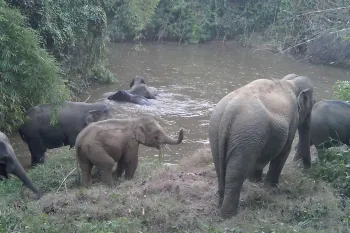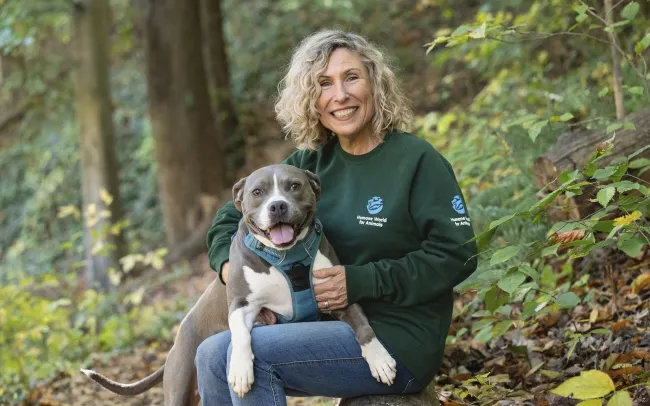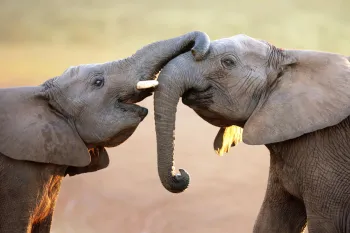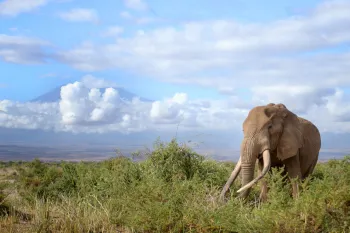Fewer than 200 critically endangered wild elephants remain in Viet Nam’s fragmented forest habitats. Humane World for Animals has been working broadly to support elephant conservation in the country—from helping develop the National Elephant Action Plan and introducing scientific monitoring tools, to supporting community engagement and awareness initiatives—all aimed at securing a future for these elephants. Humane World for Animals Viet Nam is just wrapping up Elephant Conservation Week, which has featured several public awareness and community engagement activities including a special Elephant Conservation Exhibition. In cases where human-wildlife conflict threatens the lives of animals, new ways of seeing elephants could help save their lives. Elephants are known for their capacity to love and bond with each other in tight-knit social groups, as well as their high intelligence.
Showcasing camera-trap photos and video footage of wild elephants captured by our monitoring programs, the exhibition brought the public face-to-face with the beauty of the elephants of Viet Nam. The exhibition, as well as other events throughout Elephant Conservation Week, focused on raising public awareness and encouraging behavior change. We highlighted practical safety principles—what people should and should not do when encountering elephants—as well as the broader values of nature, individual responsibility in conserving elephants and wildlife, and the importance of collective action.
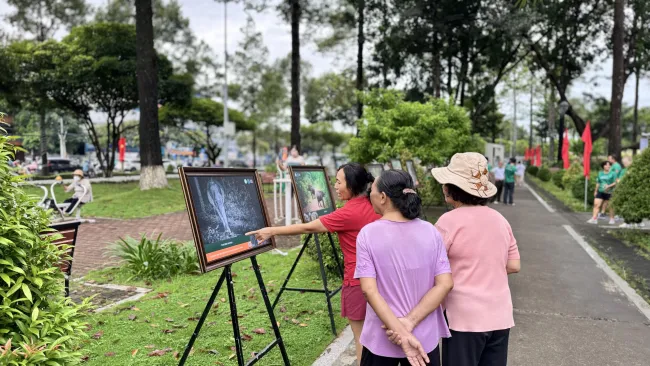
Nguyen Van Long/Humane World for Animals
We're also working with the local government on a series of coordinated, science-based, humane and elephant-centered interventions in alignment with the Viet Nam Elephant Conservation Action Plan. In partnership with the national forestry administration, we have been providing technical and financial support for conservation activities such as training law enforcement officers, forest rangers and researchers in elephant conservation techniques. These include monitoring and identifying elephants through picture analysis, tracking incidents of human-elephant conflict and conducting surveys. These measures actively engage local communities in elephant conservation.
With technical guidance from Humane World for Animals, Viet Nam has launched its first-ever Elephant Conservation Research and Enforcement Network, designed to strengthen coordination between agencies and improve protection of these critically endangered animals on the ground.
Elephant Conservation Week allowed us to showcase these efforts and bring together hundreds of participants from local communities, government agencies, and major conservation partners. More than 500 people joined a run for Dong Nai Elephants, while a lively dance event engaged over 600 participants.
One of the most encouraging outcomes was how widely these activities were shared afterwards. Stories, images and reflections from the events were published on blogs and social media, further amplifying the message that elephants deserve to be protected and showcasing Dong Nai as a pioneer province in elephant conservation efforts.
I am so proud of our team for all these efforts. It is precisely through actions like this that these critically endangered elephants have a future. It would be tragic if these animals became a mere legend to tell the country's children, a memory of a time when elephant families roamed the forests of Viet Nam. Our actions now shape the future, and it is a beautiful thing to see people become inspired to care for these elephants and their future.
